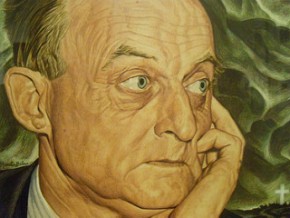The missing theologians

It was another dinner party, like all the rest, with a few close friends, an acquaintance or two, a host, and a candlelit meal seasoned with lots of small talk and laughter. But eventually the conversation made its way to something more substantial. A woman mentioned an article she’d read in the Atlantic about our educational system, and others began tentatively to chime in with their perspectives. The conversation was civil, careful even, but it was clear that not everyone had the same opinion.
The same thing happens when two guys in a delivery truck stumble into a conversation about politics. The driver mentions that his daughter is having a baby. “Thank God for Obama,” he says, “because she now has insurance.” But his helper in the passenger seat says he’s probably paying for the daughter to have that baby, and he doesn’t understand why it’s his responsibility. Since they’re stuck with each other in the truck they have to talk this through the best they can.
There are some very important national conversations taking place these days over issues like affordable health care, community policing, the inequitable distribution of wealth, immigration, sexual identity, and a national election.




